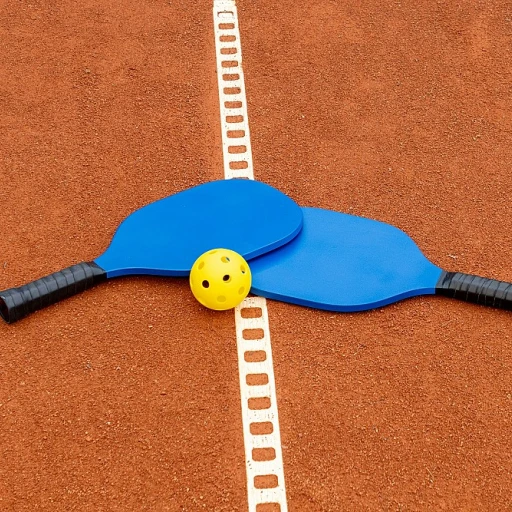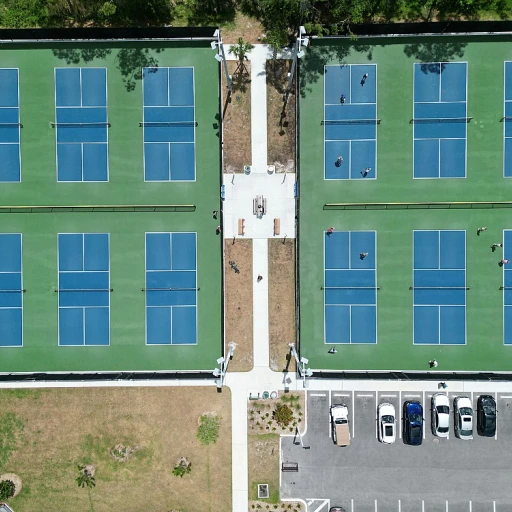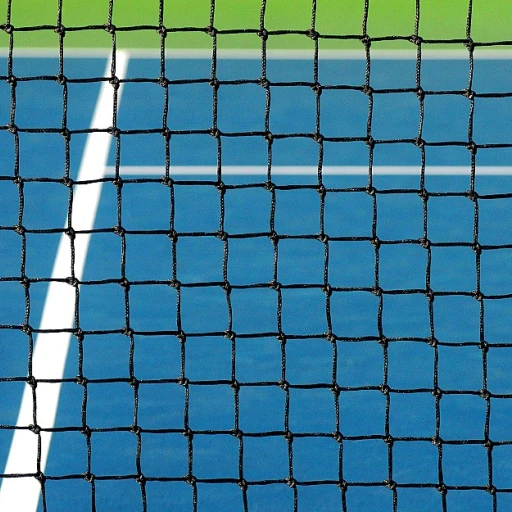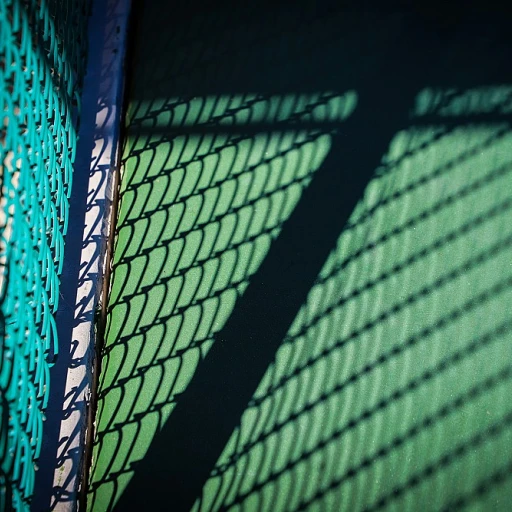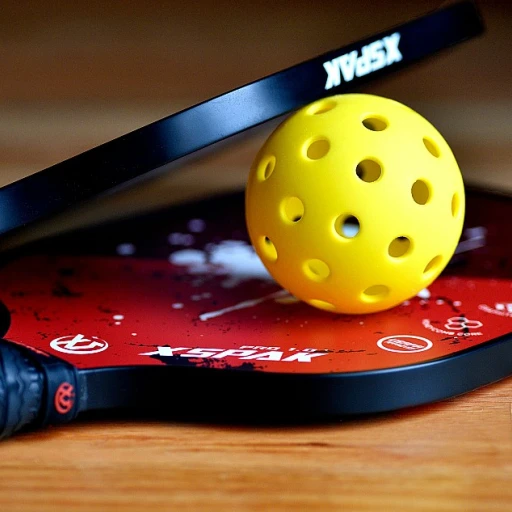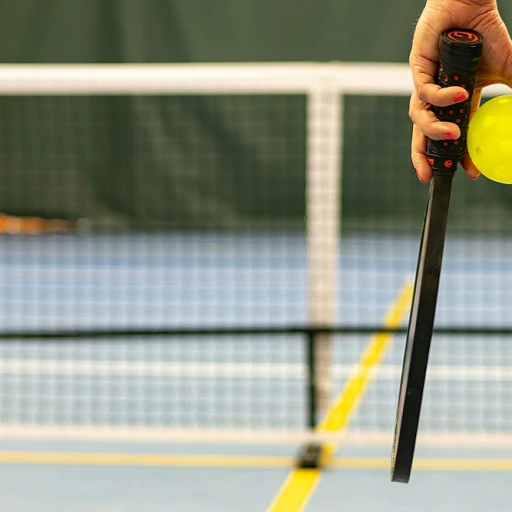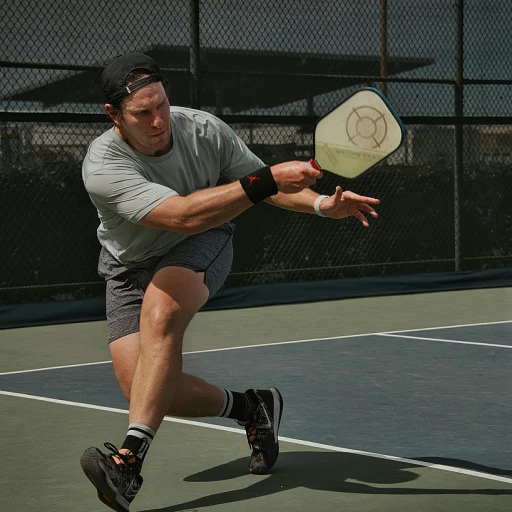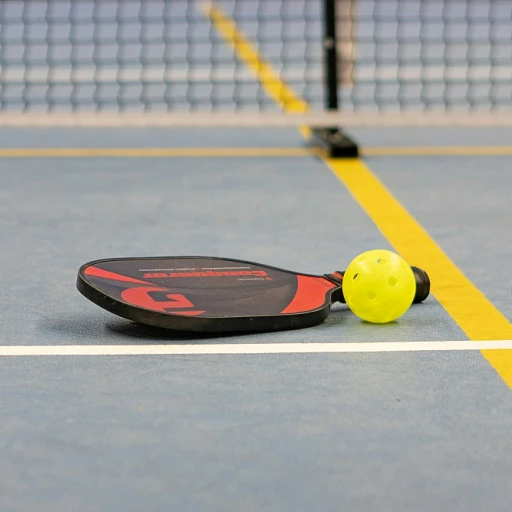Understanding the basics of pickleball
What is pickleball, anyway?
Pickleball is an exciting, fast-paced sport that combines elements of tennis, badminton, and ping-pong. Created in the mid-1960s, it's grown rapidly in popularity, especially among players looking for a fun and social game that offers both physical and mental challenges. According to the Sports & Fitness Industry Association, pickleball participation skyrocketed by 21.3% from 2019 to 2020.Basic rules and structure
At its heart, pickleball is played on a court similar in size to a doubles badminton court, which is 20 feet by 44 feet. The game is typically played with a paddle and a plastic ball with holes, sometimes referred to as a wiffle ball. Games can be played as singles or doubles. The objective? Simple: score points by making shots that your opponent can't return. The first to 11 points wins, but you must lead by at least 2 points.Know your zones: no-volley (or kitchen) zone
One unique aspect of pickleball is the “kitchen,” a 7-foot zone on either side of the net where volleying (hitting the ball in the air without letting it bounce) is prohibited. Stepping into the kitchen while volleying results in a fault. This rule tests players' strategy and dexterity, making the game even more interesting.Scoring and serving
Players can only score points when serving, and each player serves until they commit a fault, losing the serve to the opponent. In doubles, each team has a “second server” rule: two players serve before the serve switches to the other team. This mechanism is a key part of the game's dynamics. When a “serving team misses,” like hitting the ball out of bounds, they lose the opportunity serve, and the serve switches to the opposing team.Learning the lingo
Understanding terms like “second server” and “loses serve” will help you immerse yourself in the sport quickly. Knowing how to “serve points,” when the “team misses,” and what happens with a “server continues” can make the game more enjoyable and competitive.For more detailed information on finding the most suitable beginner pickleball leagues, visit find the best pickleball league near me.
How to find beginner pickleball leagues near you
Locating the best leagues for beginners
So, you're excited about pickleball and looking to join a beginner league. Good news! It's often easier than you'd think, thanks to the rising popularity of the sport. Here's a practical guide to help you find the perfect pickleball league near you.
Ask your local community center
Most community centers—whether in Riverton or any other city—are hotspots for local pickleball enthusiasts. They usually have bulletin boards or websites listing various leagues. Ask the staff or managers for league listings specifically for beginners.
Reach out to pickleball clubs
Local pickleball clubs are gold mines for finding beginner leagues. These clubs often offer sessions designed just for new players to help them get up to speed. Many will also have league coordinators who can provide information on joining entry-level leagues. For a more detailed guide on joining local pickleball clubs, check out this ultimate guide to joining local clubs.
Check online directories
Websites like USA Pickleball have comprehensive directories for leagues across different states. You can search by location to find an array of leagues, including ones specifically for beginners. Don't forget to check ratings and reviews if available!
Social media and forums
Join local pickleball Facebook groups or Reddit communities. These are great platforms to ask about beginner leagues and get recommendations from seasoned players. People often share helpful tips and latest updates on when new leagues are starting.
Visit pickleball-specific websites
Platforms like Pickleball Today often have articles and lists of beginner leagues. Keep an eye out for updates from sites dedicated to the pickleball community.
Attend local tournaments
Even if you're not ready to compete, watching local tournaments can be beneficial. You'll meet league staff, players, and managers, who can give you the scoop on beginner leagues around.
Finding a beginner pickleball league near you is all about tapping into local resources and communities. Happy hunting!
What to expect in a beginner pickleball league
Joining a beginner pickleball league: what to expect
Starting out in beginner pickleball leagues can be as exciting as it is nerve-wracking. Picture this: You've got your paddle in hand, and you're stepping onto that court for the first time with folks who are just as new to the game as you are. From understanding the basics to interacting with fellow players, here’s what you can look forward to.
Getting to know your fellow players
One of the best parts about joining a beginner league is the camaraderie. You’re not alone—everyone is learning, making mistakes, and improving together. It's like being part of a club where everyone cheers for each score. Players in beginner leagues are usually supportive and encouraging, making it a friendly environment to grow and learn.
Game rules and structure
While the game is easy to pick up, beginner leagues often emphasize the basics: how to serve, the two-bounce rule, and where to stand when your team is serving or returning. The rules might feel a bit overwhelming at first, but don’t sweat it—league staff are there to guide you through every step.
The scoring system
Understanding how to keep score can seem tricky initially. In singles, points can only be scored by the serving side, and games typically go to 11 points, but must be won by at least 2 points. In doubles, similar rules apply, but with added strategies as each team has two players and two opportunities to serve before the opposing team gets their turn.
Court layout and positioning
Don't worry if you find yourself confused about court positioning. Key areas to know include the non-volley zone (or 'kitchen'), where volleys aren't allowed, and the baseline, where most serves are initiated. Staying mindful of these areas helps improve your gameplay dramatically.
Tips from the pros
Experts like Sarah Ansboury often highlight the importance of footwork and positioning. “Keep your feet moving and always be ready for the ball,” she advises. The more you practice, the more these tips will become second nature. And remember, even the pros started as beginners!
League staff and organizational support
League coordinators, like those in Usa Pickleball, are committed to making sure your experience is smooth. They manage court schedules, ensure rules are followed, and often provide training sessions to help beginners. If you're ever in doubt, the league staff is your go-to for answers and support.
To know about how to improve your pickleball game step by step, check out our guide on finding the best pickleball leagues near me.
Enjoy the journey, meet new friends, and most importantly, have fun on the court. You're embarking on a path others have taken before, and successes, big and small, will come with each serve and volley.
Essential gear for beginner pickleball players
Gear essentials for newbie pickleball enthusiasts
Just getting into pickleball? Gear up right! Here's a rundown of the essentials you’ll need before hitting the court. Trust me, having the right kit can make a world of difference.
Must-have pickleball paddle
One of the first things you need is a decent pickleball paddle. Don’t just grab the cheapest one; investing in a good paddle can greatly affect your performance and comfort. According to USA Pickleball Association (USAPBA), the weight of the paddle usually ranges from 6.7 to 9.2 ounces. Heavier paddles offer more power but can tire your arm, while lighter paddles give better control. Players like Riverton's own Regional Champ, Sam McDonough, suggest starting with a mid-weight paddle for a balance of power and control.
Pickleball balls
The ball you use matters too. Pickleball balls come in indoor and outdoor varieties, each designed for their respective playing courts. Indoor balls usually have fewer holes (about 26) and are lighter, while outdoor balls feature more holes (around 40) to withstand wind. It’s good advice to grab a few of both types.
Appropriate court shoes
Pickleball can be tough on your feet. Good court shoes, preferably those designed for tennis or other court sports, can give you the support and grip you need. Popular brands recommended by players include ASICS and New Balance. Make sure your shoes offer lateral stability to prevent ankle injuries.
Comfortable attire
While there’s no strict dress code, wearing breathable, athletic clothes can keep you comfortable and let you move freely. Moisture-wicking fabrics are preferable, especially for outdoor games under the sun.
Protective eyewear
Safety first! A hit to the eye from a fast-moving pickleball can be dangerous. Protective eyewear might not seem necessary, but seasoned pros wouldn’t step onto the court without it. It’s a small investment for significant safety.
Pickleball bag
You’ll want a bag to carry all your gear, naturally. Look for a bag with compartments for your paddle, balls, and personal items. Some popular choices among players include the Franklin Sports bag and the Onix backpack.
Remember, as you gear up and improve your game, you’re also setting yourself up for a more enjoyable experience on the court. For more tips to boost your skills further, this guide to joining local clubs can help you find clubs near you and hone your skills.
Tips for improving your pickleball game
Practicing your serves
To make progress in pickleball, mastering your serve is fundamental. Since serving is the catalyst for each point, developing a reliable and effective serve increases your chances of thriving in beginner pickleball leagues. Consistent practice will help you find a way that works best for you.
For a solid starting point, the underhand serve is commonly adopted by beginners. You'll need to ensure your paddle is below the waist and the ball is served diagonally across the court. According to the USA Pickleball guidelines, this technique also helps in avoiding a ‘fault’ which could tilt the game in favor of your opponent.
Developing ball control
Another pivotal aspect to excel in pickleball is ball control. Unlike tennis, pickleball demands a combination of power and precision due to the smaller court size and the lighter ball. Practicing drills that focus on controlling the trajectory and speed of the ball can give you an edge over your competitors. Experts often suggest participating in drills that simulate real-game scenarios.
Positioning yourself right
Effective positioning on the court is a game-changer. Stay aware of your position in relation to your partner and the net. Try to always move in sync with your partner to avoid leaving gaps that the opposing team could exploit. Many seasoned players recommend maintaining a position close to the ‘kitchen’ or non-volley zone, to dominate the net play.
Staying familiar with the rules and etiquette
Understanding the rules will save you from unknowingly giving away points to your opponents. USA Pickleball provides comprehensive coverage of all the rules and it’s worth a read. Following the proper etiquette is equally important. For example, proper communication within your team about who takes the shot and respecting your opponents by avoiding unnecessary delays can make your playing experience more enjoyable and less stressful.
Joining a community
Pickleball is a social sport and joining a community can significantly improve your game. Not only will you find partners to play and practice with, but you can also pick up valuable tips from more experienced players. Cities like Riverton boast vibrant pickleball communities where beginners and intermediates can hone their skills.
Understanding pickleball league rules and etiquette
The nitty-gritty of scoring and serving
One thing you’ll quickly learn about pickleball leagues is that the scoring and serving can seem a bit complicated at first. But don't worry! Let's break it down.
In pickleball, games are typically played to 11 points, and you must win by 2 points. The serving team only scores points when they have the serve. If the serving team misses, goes out of bounds, or hits the ball into the net, the serve moves to their partner or switches to the opposing team. This is what players refer to as the 'service sequence game.'
Each player on the serving team is allowed a chance to serve before losing the serve to the opposing team. The first server is designated as 'Server 1,' and their partner is 'Server 2.' When the first server loses serve, the second server continues. When both lose their serve, it’s called a 'side out,' and the opposing team now has the opportunity to serve and score points.
Volley zone: the do's and don'ts
The volley zone, also known as the 'kitchen,' is the area closest to the net where players aren’t allowed to volley the ball. This means you can’t hit the ball while you’re in the volley zone until it bounces once. This rule prevents close-up smashes, which adds a strategic depth to the game. Violating this rule by contacting the volley zone without a bounce is known as a fault.
Organized chaos: how leagues run smoothly
Each pickleball league typically has a methodical approach to ensure that everything runs without a hitch. A league coordinator or manager often oversees the schedules, game duration, and other aspects of the rules. The league staff finalize details such as adjustments to game schedules and authority over match arbitrations, adding a professional touch.
Maintaining sportsmanship: etiquette in leagues
Sportsmanship is huge in pickleball, and there's an expectation that players will adhere to etiquette. This includes calling faults honestly, respecting the league staff, and fostering a friendly environment. Be mindful of your time on the court and make the games enjoyable for everyone.
Don't forget—the community of players, managers, and fans make the game more exciting. So whether you're an intermediate pickleball enthusiast in Riverton or just starting out, mastering these rules will enhance your game.
Pickleball league gossip and disputes
Yes, even in the friendly world of pickleball, disputes can arise. Whether it’s about the interpretation of a rule or a scheduling conflict, it’s essential that these issues are addressed promptly by the league staff. Some famous controversies include disputes over service sequence or arguments about whether a ball was within the volley zone. The final say usually comes down to the league authority. This ensures fairness and keeps the spirit of pickleball alive.
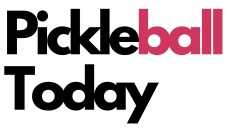

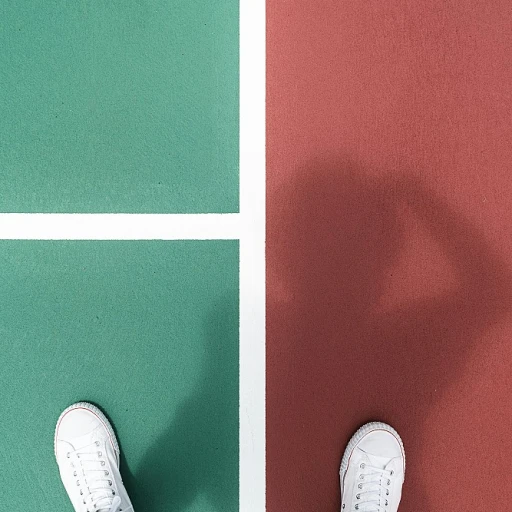
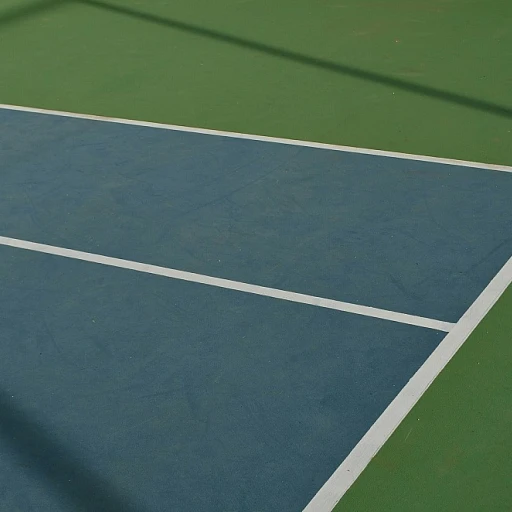
-large-teaser.webp)
-large-teaser.webp)
